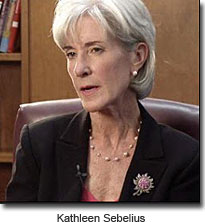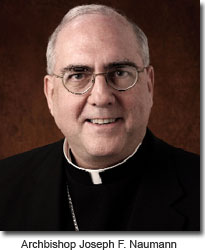By Edward Pentin
ROME, OCT. 8, 2009 (Zenit.org).- Largely thanks to the movie “Schindler’s List,” most people know about its eponymous hero Oskar Schindler, the German industrialist who saved 1,200 Jews during World War II.
Yet other untold stories of similar acts of wartime heroism took place all over Europe, many of them in Italy. And although not always on the scale of Schindler’s valiant rescue, they were nonetheless remarkable acts of selfless courage.
Now a new book reveals the true extent of how much ordinary Italians, many of whom were priests and religious, helped save Jews from the Holocaust. Titled “It Happened in Italy,” author Elizabeth Bettina, an Italian-American New Yorker, records fascinating testimonies from survivors whose lives were saved by Italians from all walks of life.
Her search began when, during summer trips to her grandmother’s house in a remote Italian village in Campagna, southern Italy, she saw a picture of a rabbi in a church. She learned that a number of Jews from outside Italy had lived in the area and, having grown up with many American Jews in New York, she was naturally curious to know why. Later, Bettina was to discover that the village was the location for an internment camp for Jews during the war, one of many others in Italy.
So after receiving encouragement from a friend, she decided to look further into how so many Jewish lives were saved in Italy — as many as 32,000 out of a population of 39,000, according to some historians.
It’s interesting to note that the survival rate for Jews who lived in wartime Italy is one of the highest in Europe, and among the most heroic Italians was Giovanni Palatucci, who is estimated to have saved as many as 5,000 Jewish lives. But unlike Schindler, who survived the war, Palatucci died in Dachau at the age of 36.
Helping neighbors
Bettina stresses that not all Italians risked their lives to save their Jewish neighbors, but the extent of the heroism was nevertheless impressive. “I can’t tell you how many times I heard: ‘The whole village knew we were Jewish and nobody turned us in,'” she says.
Italy’s policy during the war was that Jews born in the country were allowed to stay in their own homes, while those who had arrived before the war were interned. The camps, however, were largely very humane: The book shows Jews dressed casually, smiling and playing musical instruments. It wasn’t until Italy sided with the allies toward the end of the war and Germany invaded the country that their lives were put in real danger.
A number were deported to concentration camps, along with their relatives who were living at the time elsewhere in Europe. “Some bad things happened and I acknowledge them in the book,” says Bettina. “Either someone betrayed you, they didn’t help even if they could, or you were just unlucky — there was no one to try to help because they were someplace else.” But she adds there are “many, many reasons why so many survived in Italy, and the bottom line is that somebody helped them.”
She explains that those who saved Jews at risk of losing their lives (they would undoubtedly have been shot had they been discovered, according to survivors) fell into five groups of individuals: The first was a simple, ordinary Italian who refused to notify the authorities or hid them. The second was a police officer who would perhaps warn that he would come back to arrest them the next day, thereby giving them time to seek refuge. The third was a person working for the civic authorities who would fake identity documents. The fourth was a local priest or nun who gave them refuge or helped issue a false baptismal certificate.
“Did they get an official order? I don’t know,” she says when asked if perhaps Pope Pius XII might have instructed them to save their Jewish neighbors. “But many people I interviewed said there was a priest or a nun who was involved in helping them.” Finally, there were the people working in the internment camps who tried to make life as humane as possible for them (so humane that those interned were free to do as they pleased, resulting in many not knowing the camps even existed).
Out of the woodwork
But what also gives added interest to this story is that “It Happened in Italy” is the result of countless coincidences — of people somehow providentially coming into contact with Bettina and telling remarkable stories out of sheer gratitude to the Italians who saved them — or a close relative — during the war. A series of further coincidences also enabled her to bring a group of survivors to the Vatican to have a special audience with the Pope. “Everyone who comes into contact with this book has a funny way of ending up in it,” she says with a laugh.
Yet the project never started as a book; rather it took on a life of its own as more and more people came forward with testimonies from all over the world. “We had no clue this story would be so vast, and it just kept going,” Bettina says. She also insists there is no hidden purpose behind the project. “I have no agenda except to make sure these stories stay honest and true,” she explains. “I want these people who told me the stories to be listened to. I want them to get the satisfaction.”
A lingering question remains, however: Why has it taken so long for these Jews to come forward and express their gratitude? Bettina believes many Jewish survivors were just so overwhelmed by what happened that initially they just wanted to put it behind them. She says that it was only when films such as “Schindler’s List” came out that they started thinking: “And what about me and my story?” Others believe it’s because some Jews want nothing good to be associated with the Holocaust.
Catalyst
At a Rome press conference to launch the book last month, Israel’s ambassador to the Holy See, Mordechay Lewy, said he also didn’t know the reason, but that perhaps all they needed was someone like Elizabeth Bettina to trigger their gratitude.
He also said he was puzzled why Italian Jews, who have their roots in Italy and were also saved during the war, are “not always very keen” to express their thanks. He said it might have something to do with a history of difficult relations between Roman Jews and the Vatican, but he highlighted the “very strange phenomenon” of Jews who were saved in monasteries, yet are “still expressing quite anti-clerical expressions.”
Bettina says her book could be made into a movie, although she stresses that was never her intention. “I’m not a writer, I’ve never written a book before and I […] have never made a movie or a documentary,” she says. Rather one of her main motivations is she’s mindful that time is running out for these stories to be told. “They’ve all said that after us, there’s nobody,” she explains. “These are the last of the generation.”
The objective, she added, wasn’t to make Italy look great, just to show there can be good people who do the right thing, and to convey an important teaching: that if you’re not indifferent, things can be different. “Someone wasn’t indifferent,” she says. “They helped, and these people lived.”
* * *
Edward Pentin is a freelance writer living in Rome. He can be reached at: epentin@zenit.org.

